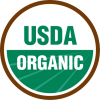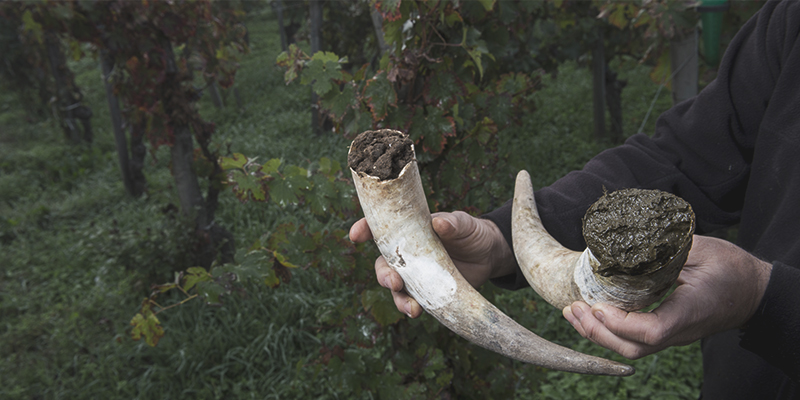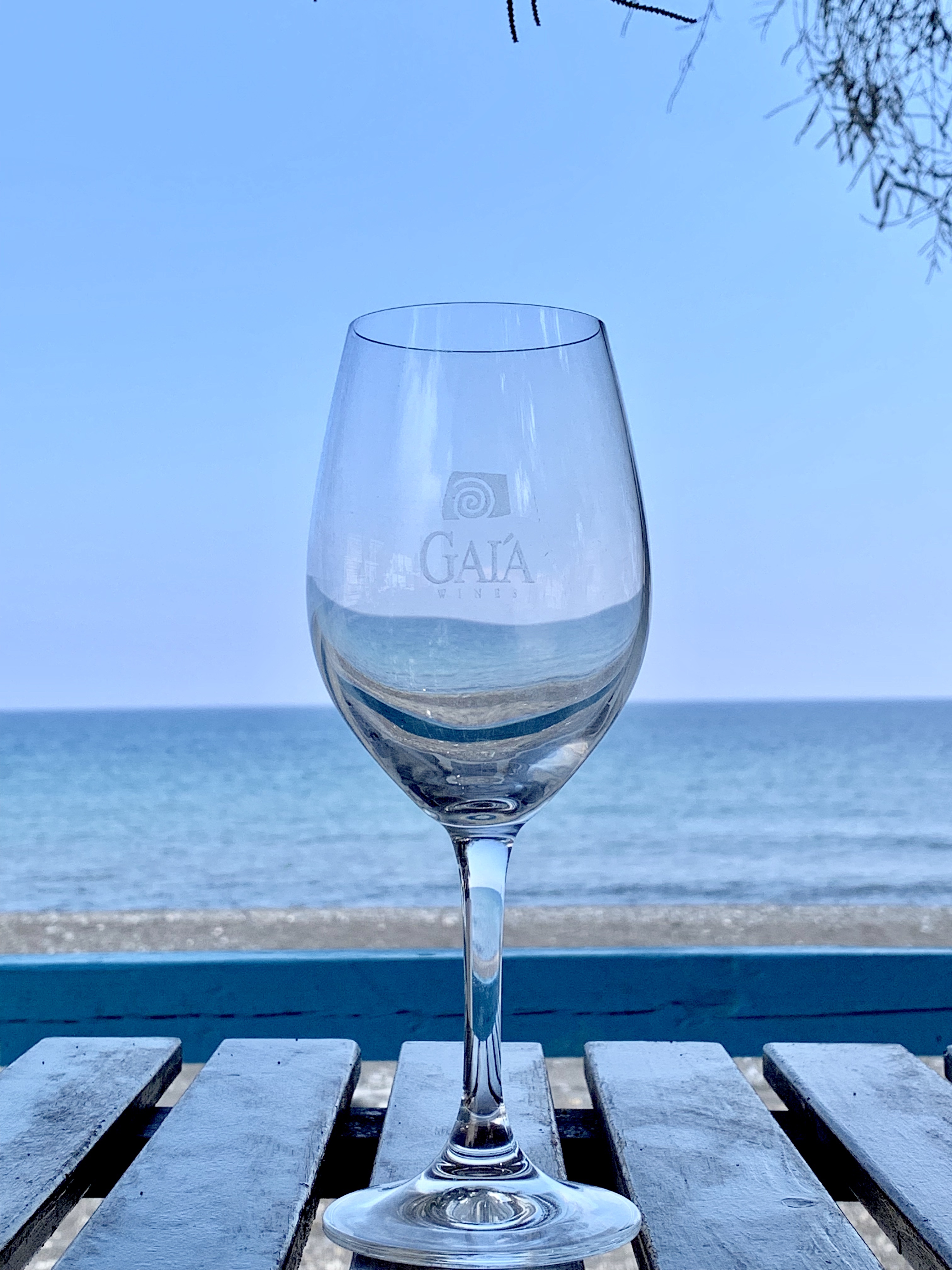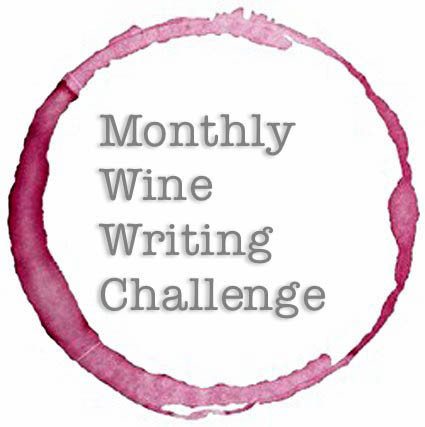
Sometimes procrastination pays off. As I was pondering the topic for this month’s Monthly Wine Writing Challenge, Environment, and trying to determine what I would write, the Keystone Pipeline leaked some 210,000 gallons of oil. That’s about 5,000 barrels! Regardless of your opinion on the pipeline, I think we can all agree that spilling crude oil is not a positive event for the environment.
What does this have to do with wine? Nothing, really. However, it got me thinking about how we can continue to function in the modern, industrialized world while being good stewards of the environment in which we live. Therein lies the connection to wine.
Modern agricultural operations, including vineyards, incorporate the use of things like chemical fertilizers and genetically modified organisms. Opinions vary on these topics, often passionately, and I am not here to argue any particular viewpoint. I simply want to lay a foundation and present some facts. “Just the facts, ma’am.”

The use of fertilizers, herbicides, and pesticides have had positive effects on farming over the years, by increasing yields, and reducing damage done by insects and other pests. However, these same chemicals can leach into water tables or run off into nearby waterways, which can cause damage to desirable plants and animals, and contaminate food and water supplies for human consumption. In recent years, many farmers have become more environmentally conscious, and are turning to natural or organic methods to control pests and increase yields.
In viticulture, organic and biodynamic farming practices have taken root (pun intended 🙂) and are becoming more and more popular. Both methods are chemical-free, and emphasize soil health to ensure optimum growing conditions. Increasingly, consumers are seeking out organic or biodynamic wines, which encourages farmers and producers to consider these practices from both an environmental and a social responsibility perspective.
Organic farming is regulated in the United States by the Department of Agriculture, or USDA. In vineyard management, certified organic grapes are grown without the use of any synthetic additives, such as pesticides or fertilizers. All aspects of winemaking are included in certified organic wines, including yeast strains, fining agents, and any other materials used in the production of the wine. In the wine world, organic wines may have various degrees. From certified organic wines, to those made with organic grapes but may include non-organic additives. Biodynamic wines are, by their nature, also considered organic, but are taken to a higher level. Any and all of these farming techniques reduce the amount of harmful chemicals being used and released into the environment.

When I first heard of Biodynamic farming, I was a little skeptical. Well, that’s a bit of an understatement…I thought it was just weird. Hippie-dippie stuff. I mean, come on, planting and harvesting based on the phases of the moon and stars? Burying cows’ horns filled with manure? Seriously? However, the more I’ve learned about biodynamic vineyard management, the more I become a believer. Or at least accepting.

Biodynamic farming embraces the idea that all things are interconnected in the universe. It takes the “Butterfly Effect” to the ultimate extreme. Applying this belief involves achieving balance between the vines, earth, moon, and stars. In practice, this holistic approach to farming includes such activities as adhering to a biodynamic calendar for farming activities, and yes, burying manure-filled cows’ horns (never a bull’s horn, apparently) in the ground over the winter, and then spreading the manure in the vineyards in the spring. The biodynamic calendar identifies four categories of days: Root, Fruit, Flower, and Leaf days. Fruit days are the best for harvesting grapes. Root days are for pruning. Flower days are rest days for the vineyard. And Leaf days are for watering. Some even extend the biodynamic calendar to the finished product, by drinking these wines only on Flower or Fruit days. Those ardent followers believe this is the reason the same wine may taste differently on different days.
Do organic or biodynamic wines taste better? I’ve never noticed a difference. But then again, I’ve never done a blind tasting, comparing organic, biodynamic, and conventional wines. Perhaps I’ll do just that, and share my findings in a future blog post!
Whether organic and biodynamic wines are better quality or not, the practices employed in producing them are arguably better for the environment. In my opinion, anything I can do to be a better steward of the planet on which we live is worthwhile. After all, it’s the only environment we have.
Have you tried organic or biodynamic wines? Let me know, in the comments, what you thought of them.
Cheers!
- By Kent Reynolds




It’s interesting in Livermore, there are a lot of vineyards abiding by the organic rules because they’re customers expect it but they’re not certified organic because of the paperwork and expense.
Hope you move forward with the blind tasting, I’d be interested in hearing the results!
LikeLike
Yes, I’ve heard that achieving Organic certification is arduous and costly, which prevents many producers from pursuing it.
I’ll definitely let you know about the blind tasting!
Cheers!
LikeLike
Reblogged this on mwwcblog.
LikeLike
The first time I started to take notice of biodynamic wines was when, a few years back, I went to a number of tastings within a very short period of time and, at the end of each evening, my top 1, 2 and on one occasion 3 scores were all biodynamic. I didn’t know which wines were biodynamic before the tasting so it was a true blind assessment. Then I started to actually look for these wines and found time and time again that I notice a particular intensity that is found less often on non-biodynamic wines. I’m still not sure about the cow horns, but it’s the taste that matters!
LikeLiked by 1 person
That’s great info, Ian! Thanks for sharing your experiences. And I agree, it’s all about the taste!
LikeLike
It doesn’t have to be biodynamic for me but the more bio it is, the better! In tempore non suspecto I drank pretty much what I could lay my hands on. Gradually I started to pay attention to the farming practices of the vintner. Today I won’t drink anything that doesn’t at least specify “lutte raisonnée”. For sentimental (or call it loyalty) reasons I keep buying wines from wineries that are not (yet) bio and see, over the past years several of them have turned bio after all! (In Champagne and Bordeaux in particular you can still get sick or feel unwell if you spend an afternoon in the vineyard during their spraying time!)
No doubt in my mind that wine made from healthy, untreated grapes is healthier than wine made from grapes that have received from 5 to 12 ”treatments” during the year!
And is the wine I drink good? I wouldn’t drink ik if it were otherwise.
Good luck with your comparative tasting and let us know your results. Cheers!
LikeLiked by 1 person
Thank you for your feedback! Your observations are very interesting. They also remind me of a time, some years ago, when I lived adjacent to a vineyard. Our water came from a well, and I recall during spraying time the water was often undrinkable. I think any time a producer can reduce or eliminate the use of chemicals is a good thing.
Cheers!
LikeLike